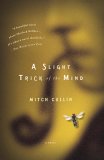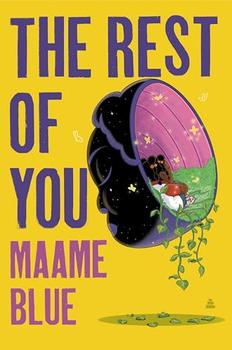Summary | Excerpt | Reviews | Read-Alikes | Genres & Themes | Author Bio

An intellectually demanding, yet emotionally affecting, first novel by short-story writer Bock that tackles the large philosophical and ethical questions raised by Hiroshima.
A scientist stealing across the Pyrenees into Spain, then smuggled into America . . .
A young woman quarantined on a ship wandering the Atlantic, her family stranded in Austria . . .
A girl playing on a riverbank as a solitary airplane appears on the horizon . . .
Lives already in motion, unsettled by war, and about to change beyond reckoning---their pasts blurred and their destinies at once defined and distorted by an inconceivable event. For that man was bound for the desert of Los Alamos, the woman unexpectedly en route to a refugee camp, the girl at Ground Zero and that plane the Enola Gay. In August of 1945, in a blinding flash, Hiroshima sees the dawning of the modern age.
With these three people, Dennis Bock transforms a familiar story---the atom bomb as a means to end worldwide slaughter---into something witnessed, as if for the first time, in all its beautiful and terrible power. Destroyer of Worlds. With Anton and Sophie and Emiko, with the complete arc of their histories and hopes, convictions and regrets, The Ash Garden is intricate yet far-reaching: from market streets in Japan to German universities, from New York tenements to, ultimately, a peaceful village in Ontario. Revealed here, as their fates triangulate, are the true costs and implications of a nightmare that has persisted for more than half a century.
In its reserves of passion and wisdom, in its grasp of pain and memory, in its balance of ambition and humanity, this first novel is an astonishing triumph.
Chapter 1
We had very little in the days when the war was still far away, in the remote place I imagined all wars lived when I was a girl. When it finally came to our city in August 1945 it consumed what little we had left, and years later, when there was nothing left at all, I was forced to journey to America to begin my surgeries. Of course, when I was a child it had seemed to me that what we'd had in those early days was sufficient. All but the barest necessities had been taken from us, but we didn't know any better. I often thought of the war as some great famished beast that ate away at the heart of my people. But my family was no different from any other family in the Asaminami district, the area of the city we lived in, and my brother and I never missed what we'd never had. I do not know if our parents and grandfather felt the same way.
In what might seem a rare gift in the legacy of my family's suffering, my mother and father were lucky enough to die at ...
 Leon Rooke
The Ash Garden can stand comparison with the best novels of our time. It is magnificent.
Leon Rooke
The Ash Garden can stand comparison with the best novels of our time. It is magnificent. Wayson Choy
Dennis Bock creates his disturbing universe in the manner of the great moralists like Shusaku Endo or Athol Fugard. Grounding the two predominant man-made horrors of the last century in the lives of his three main characters, Bock's risk-taking imagination, his compassionate intelligence and superb writing, make The Ash Garden an evocative must-read experience.
Wayson Choy
Dennis Bock creates his disturbing universe in the manner of the great moralists like Shusaku Endo or Athol Fugard. Grounding the two predominant man-made horrors of the last century in the lives of his three main characters, Bock's risk-taking imagination, his compassionate intelligence and superb writing, make The Ash Garden an evocative must-read experience.
If you liked The Ash Garden, try these:

by Mitch Cullin
Published 2006
This subtle and wise work is more than a re-imagining of Sherlock Holmes but a profound meditation on faultiness of memory and how, as we grow older, the way we see the world is inevitably altered.

by Shirley Hazzard
Published 2004
A deeply observed story of love and separation, of disillusion and recovered humanity, marking the much-awaited return to fiction of Shirley Hazzard.




The purpose of life is to be defeated by greater and greater things.
Click Here to find out who said this, as well as discovering other famous literary quotes!